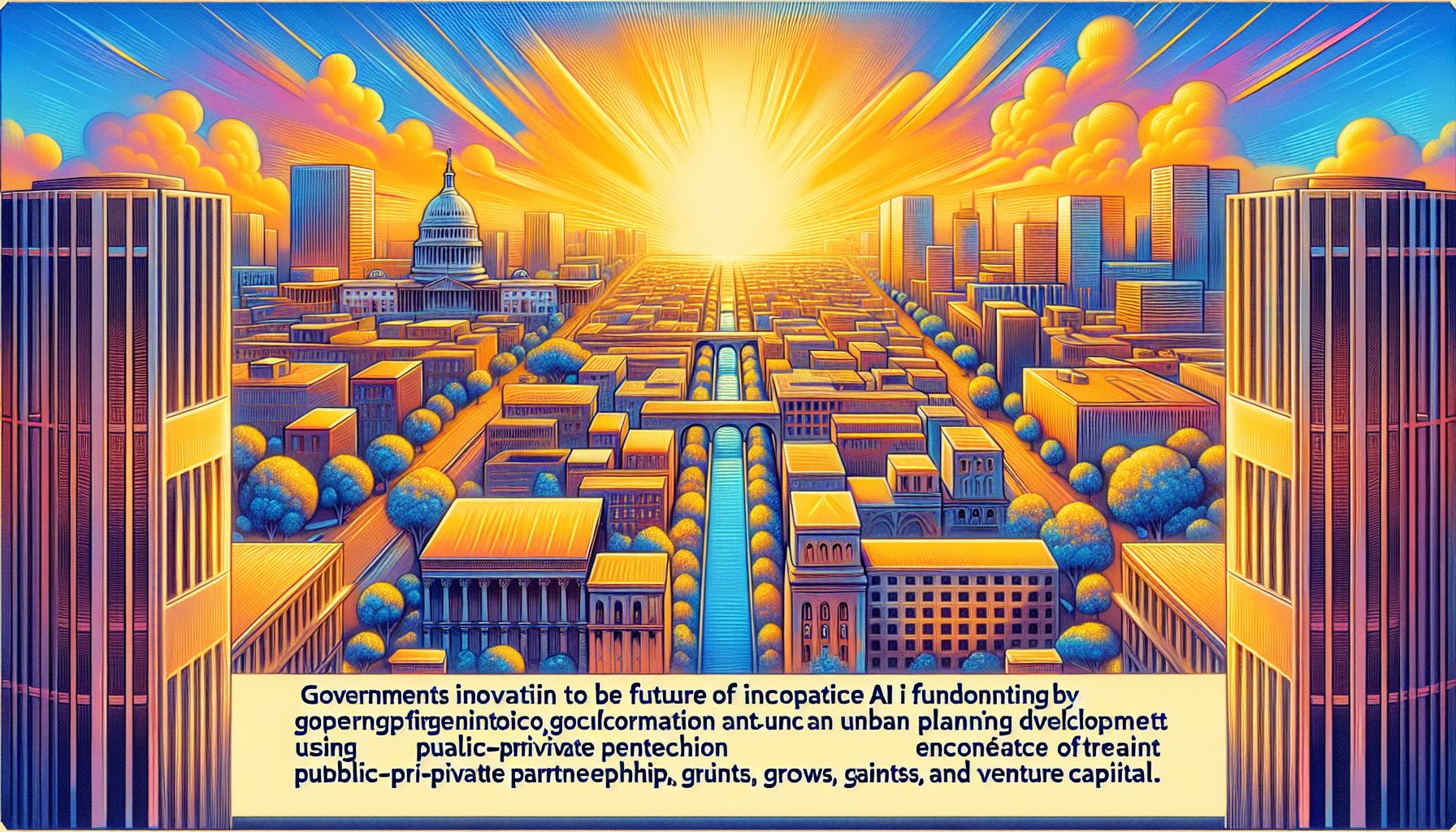AI Funding Models Reshape Urban Planning: Smart Cities on the Horizon

Amsterdam, Tuesday, 22 October 2024.
Governments are exploring innovative funding models to integrate AI into urban development, enhancing efficiency and smart city solutions. Public-private partnerships, grants, and venture capital are driving this transformation, promising to revolutionize city planning and improve citizens’ lives.
Exploring Funding Mechanisms for AI in Urban Development
As urbanization continues to accelerate, cities worldwide are increasingly looking towards artificial intelligence (AI) to enhance their infrastructure and address the complex challenges posed by modern urban living. The integration of AI into urban planning is facilitated by various funding models, including public-private partnerships (PPPs), government grants, and venture capital investments. These funding mechanisms not only support the technological advancement of cities but also distribute the financial risks and responsibilities among stakeholders. Such collaborative efforts are crucial in transforming urban landscapes into more efficient and sustainable environments.
The Role of Public-Private Partnerships
Public-private partnerships (PPPs) represent a foundational pillar in the funding of AI-driven urban projects. By leveraging private sector expertise and resources, PPPs enable the deployment of advanced AI systems that can optimize urban services, such as traffic management and waste disposal. For instance, a city implemented an AI-based traffic management system through a PPP, achieving a 30% reduction in traffic delays and a 20% decrease in emissions[1]. These partnerships facilitate the sharing of financial burdens, allowing cities to harness innovative technologies without bearing the full cost of development.
Government Grants and Venture Capital Investments
Governments are increasingly offering grants and subsidies to encourage the adoption of AI in urban planning. These financial incentives aim to support both research and development and the practical implementation of AI solutions. For example, a local government’s AI-driven waste management system, funded by a government grant, achieved a 25% reduction in operational costs and improved recycling rates by 15%[1]. Meanwhile, venture capital investments are playing a pivotal role in driving innovation, particularly for startups focused on scalable AI solutions with significant social impact. This influx of capital is vital for nurturing the next generation of urban tech entrepreneurs.
Pilot Projects and Ethical Considerations
Pilot projects serve as a testing ground for AI applications in urban settings, allowing cities to evaluate the effectiveness of new technologies in a controlled environment before widespread implementation. These projects enable municipal authorities to make data-driven decisions, optimizing urban planning strategies through the analysis of traffic patterns, environmental data, and citizen feedback. However, the integration of AI in urban planning also raises ethical concerns, particularly around data privacy and transparency. Robust governance frameworks are essential to ensure public trust and to address potential ethical implications[1].
The Future of Smart Cities
The evolution of funding models for AI in urban development underscores the growing collaboration between the public and private sectors. As cities continue to embrace AI technologies, the potential for creating smarter, more resilient urban environments becomes increasingly attainable. By fostering innovation through strategic funding and partnerships, urban planners can develop solutions that not only improve efficiency but also enhance the quality of life for citizens. The integration of AI into city planning marks a significant step towards the realization of smart cities, where technology and sustainability coexist harmoniously[1].

